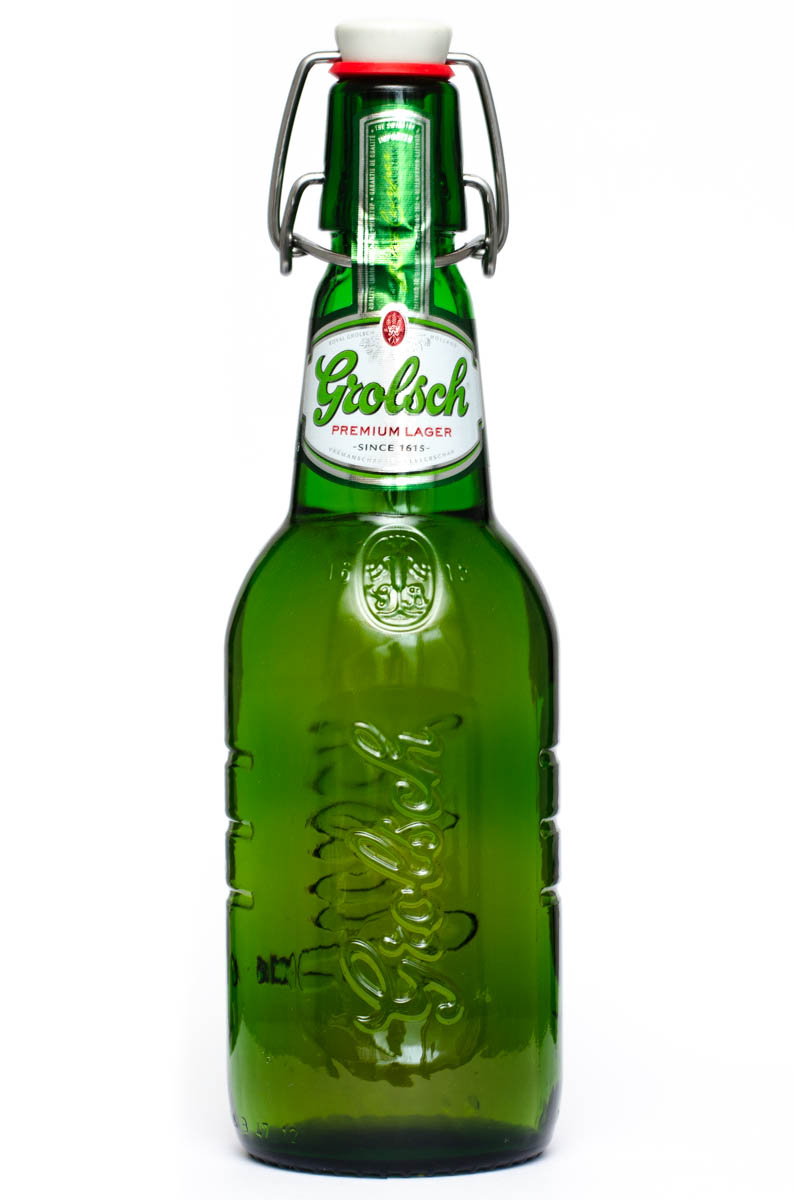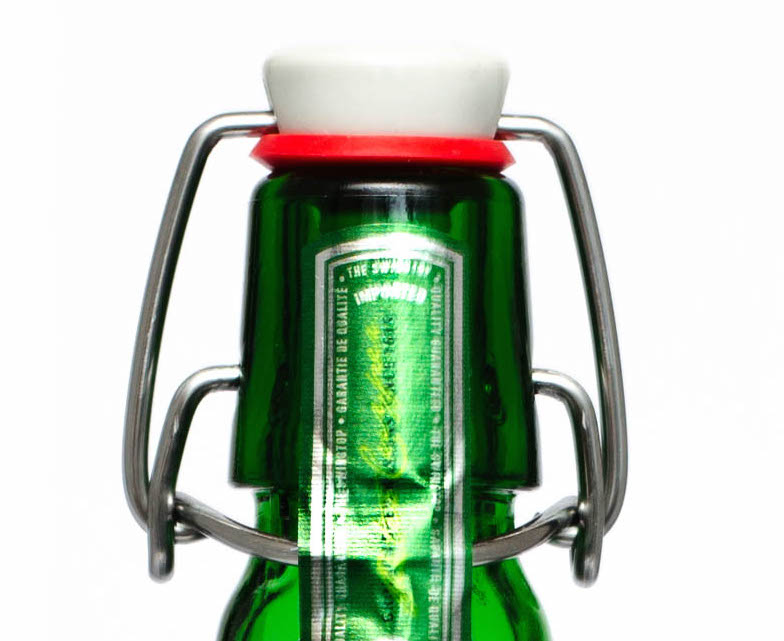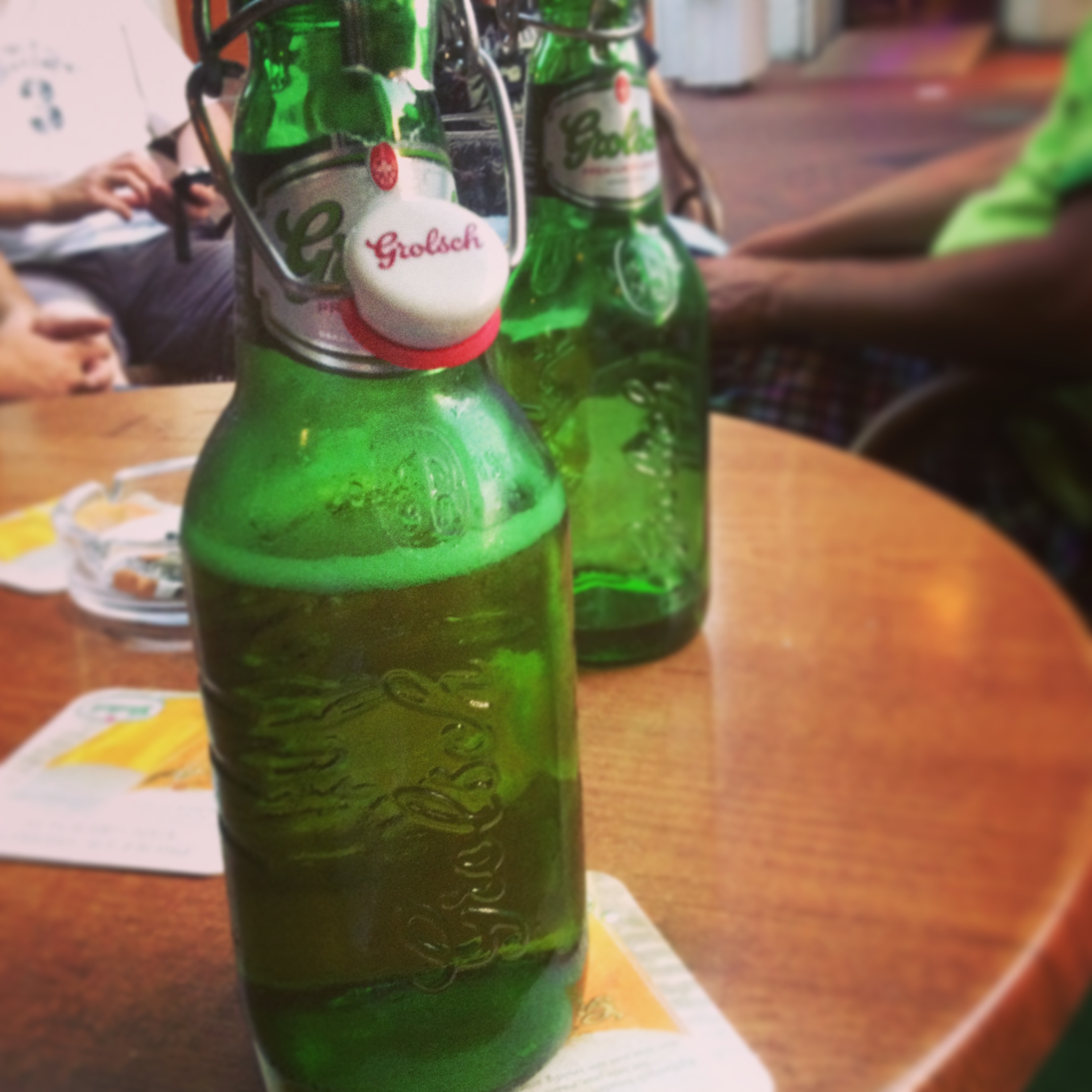Grolsch Brewery on:
[Wikipedia]
[Google]
[Amazon]
Grolsch Brewery (Koninklijke Grolsch N.V. - "Royal Grolsch"), known simply as Grolsch (), is a Dutch
'' Fortune'' 2016-12-13
 Though built as a secondary facility, the Enschede brewery over the years became the main producer of Grolsch. This brewery was heavily damaged during a fireworks explosion on 13 May 2000. The brewery in Groenlo has closed and a new brewery in Boekelo, near Enschede (replacing both the Groenlo and the old Enschede affiliate) was opened in 2004.
To underline their ties with Enschede and the whole region Grolsch signed a deal with professional football club
Though built as a secondary facility, the Enschede brewery over the years became the main producer of Grolsch. This brewery was heavily damaged during a fireworks explosion on 13 May 2000. The brewery in Groenlo has closed and a new brewery in Boekelo, near Enschede (replacing both the Groenlo and the old Enschede affiliate) was opened in 2004.
To underline their ties with Enschede and the whole region Grolsch signed a deal with professional football club
 Grolsch produces a range of mainly
Grolsch produces a range of mainly

 In addition to the 'new' bottle, Grolsch uses a distinctively shaped bottle for some of its products, known as ''de beugel'' or '
In addition to the 'new' bottle, Grolsch uses a distinctively shaped bottle for some of its products, known as ''de beugel'' or '
Grolsch Global
Grolsch UK
Grolsch's The MarkGrolsch's The Mark - development blog
{{Authority control 1615 introductions Achterhoek Companies established in 1615 Companies based in Overijssel Breweries in the Netherlands Dutch brands Asahi Breweries 1615 establishments in the Dutch Republic Food and drink companies established in the 17th century
brewery
A brewery or brewing company is a business that makes and sells beer. The place at which beer is commercially made is either called a brewery or a beerhouse, where distinct sets of brewing equipment are called plant. The commercial brewing of bee ...
founded in 1615 by Willem Neerfeldt in Groenlo
Groenlo () is a city in the municipality of Oost Gelre, situated in the eastern part of the Netherlands, on the German border, within a region in the province of Gelderland called the Achterhoek (literally: "back corner"). Groenlo was a municipali ...
. In 1895 the de Groen family bought the brewery. They had started their own brewery in Enschede the Netherlands in the early 19th century. It held a significant stake until November 2007. Today the main brewery is located in Enschede.
It was awarded the '' Koninklijk'' (Royal) title in 1995. The Grolsch brand became a part of the SABMiller
SABMiller plc was a South African multinational brewing and beverage company headquartered in Woking, England on the outskirts of London until 10 October 2016 when it was acquired by Anheuser-Busch InBev. Prior to that date, it was the world ...
group in March 2008.
As part of the agreements made with regulators before Anheuser-Busch InBev
Anheuser-Busch InBev SA/NV, commonly known as AB InBev, is an American-Belgian multinational drink and brewing company based in Leuven, Belgium. AB InBev has a global functional management office in New York City, and regional headquarters i ...
was allowed to acquire SABMiller
SABMiller plc was a South African multinational brewing and beverage company headquartered in Woking, England on the outskirts of London until 10 October 2016 when it was acquired by Anheuser-Busch InBev. Prior to that date, it was the world ...
, the company sold Grolsch to Asahi Breweries
is a Japanese global beer, spirits, soft drinks and food business group headquartered in Sumida, Tokyo.
In 2019, the group had revenue of JPY 2.1 trillion. Asahi's business portfolio can be segmented as follows: alcoholic beverage business ...
in late 2016. The deal was expected to close during the first half of 2017.Asahi Forks Over $7.8 Billion for 5 of AB InBev’s Beer Brands'' Fortune'' 2016-12-13

History
The Grolsch brewery was founded in 1615 inGroenlo
Groenlo () is a city in the municipality of Oost Gelre, situated in the eastern part of the Netherlands, on the German border, within a region in the province of Gelderland called the Achterhoek (literally: "back corner"). Groenlo was a municipali ...
. The city of Groenlo was then known as Grolle, hence the name Grolsch, meaning 'of Grolle'. Grolsch is best known for its 5% abv pale lager
Lager () is beer which has been brewed and conditioned at low temperature. Lagers can be pale, amber, or dark. Pale lager is the most widely consumed and commercially available style of beer. The term "lager" comes from the German for "stora ...
, Grolsch Premium Pilsner. The brewery was first operated by Willem Neerfeldt. Neerfeldt's son-in-law, Peter Sanford Kuyper, later took over. Grolsch was, as of February 2006, the second largest brewer in the Netherlands (after Heineken
Heineken Lager Beer ( nl, Heineken Pilsener), or simply Heineken () is a pale lager beer with 5% alcohol by volume produced by the Dutch brewing company Heineken N.V. Heineken beer is sold in a green bottle with a red star.
History
On 15 Fe ...
) with annual production of 320 million litres. The domestic market comprises fifty-one per cent of total production.
Change of ownership
On 19 November 2007 the board of Royal Grolsch NV accepted an €816 million offer for the company bySABMiller
SABMiller plc was a South African multinational brewing and beverage company headquartered in Woking, England on the outskirts of London until 10 October 2016 when it was acquired by Anheuser-Busch InBev. Prior to that date, it was the world ...
. The takeover was completed with the delisting of Grolsch's shares on 20 March 2008.
SABMiller
SABMiller plc was a South African multinational brewing and beverage company headquartered in Woking, England on the outskirts of London until 10 October 2016 when it was acquired by Anheuser-Busch InBev. Prior to that date, it was the world ...
subsequently sold the company to Anheuser-Busch InBev
Anheuser-Busch InBev SA/NV, commonly known as AB InBev, is an American-Belgian multinational drink and brewing company based in Leuven, Belgium. AB InBev has a global functional management office in New York City, and regional headquarters i ...
and in April 2016, the latter accepted Asahi Group Holdings Ltd.’s offer to buy not only Grolsch but also the Peroni and Meantime beer brands for €2.55 billion (US $2.9 billion).
International market
Grolsch is the 21st largest provider of beer in the world, and is available in 70 countries. Grolsch focuses primarily on the United Kingdom, the United States, Canada, Australia and New Zealand. These primary markets make up 78 per cent of Grolsch's international sales (by volume). Grolsch Premium Pilsner is by far the most important beer in its international profile, while its Amsterdam brand grew by 40 per cent in 2006, primarily in Russia and France. For 25 years Grolsch Premium Pilsner was brewed under licence in the UK by Grolsch (UK) Ltd., a joint venture with Coors Brewers Ltd until November 2019. It was no longer available in the UK after Asahi ended the JV. However, it was reintroduced into the UK in late October 2020 with a lower ABV recipe at 4%. In 2002, the Canadian Sleeman Breweries purchased the rights to distribute Grolsch in Canada.United States
In 2006, Grolsch ended its five-year relationship with importer United States Beverage, LLC, and signed a distribution agreement with Anheuser-Busch effective 1 April 2006, which was terminated following the SABMiller acquisition as A-B did not want to promote a rival's product. Five beers are featured in the US market: Grolsch Lager, Grolsch Amber, Grolsch Blonde and Grolsch Light. Grolsch Premium Pilsner is available in a wide variety of serving sizes, including swing-top bottles, mini-kegs and half-barrels. The others have only been confirmed available in 6 pack, 12 oz bottles.The brewery
 Though built as a secondary facility, the Enschede brewery over the years became the main producer of Grolsch. This brewery was heavily damaged during a fireworks explosion on 13 May 2000. The brewery in Groenlo has closed and a new brewery in Boekelo, near Enschede (replacing both the Groenlo and the old Enschede affiliate) was opened in 2004.
To underline their ties with Enschede and the whole region Grolsch signed a deal with professional football club
Though built as a secondary facility, the Enschede brewery over the years became the main producer of Grolsch. This brewery was heavily damaged during a fireworks explosion on 13 May 2000. The brewery in Groenlo has closed and a new brewery in Boekelo, near Enschede (replacing both the Groenlo and the old Enschede affiliate) was opened in 2004.
To underline their ties with Enschede and the whole region Grolsch signed a deal with professional football club FC Twente
Football Club Twente () is a Dutch professional football club from the city of Enschede, sometimes known internationally as Twente Enschede. The club was formed in 1965 by the merger of 1926 Dutch champions Sportclub Enschede with Enschedes ...
to sponsor their stadium starting the 2008–2009 season. The stadium is named De Grolsch Veste (Grolsch Fortress), a reference to the history of fortified city Grol, the hometown of Grolsch.
Price fixing conviction
On 18 April 2007, theEuropean Commission
The European Commission (EC) is the executive of the European Union (EU). It operates as a cabinet government, with 27 members of the Commission (informally known as "Commissioners") headed by a President. It includes an administrative body ...
imposed fines on Heineken International
Heineken N.V. () is a Dutch multinational brewing company, founded in 1864 by Gerard Adriaan Heineken in Amsterdam. , Heineken owns over 165 breweries in more than 70 countries. It produces 348 international, regional, local and speciality b ...
of €219.3m, Grolsch of €31.65m and Bavaria
Bavaria ( ; ), officially the Free State of Bavaria (german: Freistaat Bayern, link=no ), is a state in the south-east of Germany. With an area of , Bavaria is the largest German state by land area, comprising roughly a fifth of the total l ...
of €22.85m for operating a price-fixing cartel in the Netherlands, totalling €273.7m. InBev
InBev () is a brewing company that resulted from the merger between Belgium-based company Interbrew and Brazilian brewer AmBev which took place in 2004. It existed independently until the acquisition of Anheuser-Busch in 2008, which formed Anheu ...
, (formerly Interbrew), escaped without a penalty because it provided "decisive information" about the cartel which operated between 1996 and 1999 with others in the EU market. The brewers controlled 95% of the Dutch market, with Heineken claiming a half and the three others 15% each.
Former EU Competition Commissioner Neelie Kroes
Neelie Kroes (; born 19 July 1941) is a retired Dutch politician of the People's Party for Freedom and Democracy (VVD) and businessperson who served as European Commissioner from 22 November 2004 to 1 November 2014.
Kroes studied Economics at ...
said, at the time, that she was "very disappointed" that the collusion took place at the very highest (boardroom) level. She added, Heineken, Grolsch, Bavaria and InBev tried to cover their tracks by using code names and abbreviations for secret meetings to carve up the market for beer sold to supermarkets, hotels, restaurants and cafes. The price fixing
Price fixing is an anticompetitive agreement between participants on the same side in a market to buy or sell a product, service, or commodity only at a fixed price, or maintain the market conditions such that the price is maintained at a given ...
extended to cheaper own-brand labels and rebates for bars.
Beers
pale lager
Pale lager is a very pale-to- golden-colored lager beer with a well- attenuated body and a varying degree of noble hop bitterness.
The brewing process for this beer developed in the mid-19th century, when Gabriel Sedlmayr took pale ale brewi ...
beers from alcohol free to 11.6% abv:
* Grolsch Premium Pilsner - Known internationally as Grolsch Premium Lager, is its flagship beer and comprises 95% of all sales. It contains 5.0% abv.
* Grolsch Premium Blond - Blond is a lighter version of the Pilsner
Pilsner (also pilsener or simply pils) is a type of pale lager. It takes its name from the Bohemian city of Plzeň (german: Pilsen), where the world's first pale lager (now known as Pilsner Urquell) was produced in 1842 by Pilsner Urquell Brewe ...
, with 30 per cent fewer calories and 4% abv.
* Grolsch Premium Light - A light version of the Pilsner with 3.7% abv, available only in the United States.
* Grolsch Premium Weizen - A traditional hefeweizen
Wheat beer is a top-fermented beer which is brewed with a large proportion of wheat relative to the amount of malted barley. The two main varieties are German ''Weizenbier'' and Belgian ''witbier''; other types include Lambic (made with wild ...
brewed according to the Reinheitsgebot
The ''Reinheitsgebot'' (, literally "purity order") is a series of regulations limiting the ingredients in beer in Germany and the states of the former Holy Roman Empire. The best known version of the law was adopted in Bavaria in 1516 (by Wil ...
. It finishes soft and wet and has 5.5% abv.
Speciality brews:
* Grolsch Premium Lentebok (6.5% abv)
* Grolsch Premium Herfstbok (6.5% abv)
* Grolsch Premium Malt (alcohol free)
* Grolsch Oud Bruin (2.5% abv)
* Grolsch Het Kanon (11.6% abv)
* Grolsch Premium 2.5 (2.5% abv)
* Grolsch Lemon 2.5 (2.5% abv)
* Grolsch Cranberry Rosé (5.5% abv)
* Grolsch Radler (2% abv)
Grolsch also produces the Amsterdam brand of low-priced, mainly strong lager
Pale lager is a very pale-to-golden-colored lager beer with a well- attenuated body and a varying degree of noble hop bitterness.
The brewing process for this beer developed in the mid-19th century, when Gabriel Sedlmayr took pale ale brewin ...
s for the European market. It is also sold in Singapore and Australia.
* Amsterdam Maximator (11.6% abv)
* Amsterdam Navigator (8.4% abv)
* Amsterdam Explorator (6.8% abv)
* Amsterdam Mariner (4.8% abv)
* Amsterdam Liberator (alcohol free)
Bottle design
Beugel

 In addition to the 'new' bottle, Grolsch uses a distinctively shaped bottle for some of its products, known as ''de beugel'' or '
In addition to the 'new' bottle, Grolsch uses a distinctively shaped bottle for some of its products, known as ''de beugel'' or 'porcelain
Porcelain () is a ceramic material made by heating substances, generally including materials such as kaolinite, in a kiln to temperatures between . The strength and translucence of porcelain, relative to other types of pottery, arises main ...
, but is now made of plastic. Bottles with porcelain tops are still in circulation in the Netherlands. They are popular with homebrewers
Homebrewing is the brewing of beer or other alcoholic beverages on a small scale for personal, non-commercial purposes. Supplies, such as kits and fermentation tanks, can be purchased locally at specialty stores or online. Beer was brewed dom ...
, as they are very robust and can easily be sealed by hand without the expense of new crown seals.
Occasionally Grolsch will use different color bottles, depending on the brew, e.g. the bottle for blonde lager is yellow, while the 2.5 lemon variety came in a clear 250 mL bottle.
The new bottle
In 2007, Grolsch also started using green bottles for the home market. Grolsch was the first major brewery to stop using the brown refillable bottles which were used by nearly every brewery in the Netherlands. The new green bottles have the Grolsch logo marked in the glass and come in a new package. The label is now placed higher at the neck of the bottle, and the bottles contain 10% more beer (now 330ml). The new bottle was introduced through the slogan 'Bier mag weer gezien worden', which translates roughly as, "Beer that is fit to be seen again." In November 2014, the brewery changed to new, smaller bottles that contain 300 mL for Grolsch Premium Pilsner, Grolsch Stender, Grolsch Radler and Kornuit.References
External links
Grolsch Global
Grolsch UK
Grolsch's The Mark
{{Authority control 1615 introductions Achterhoek Companies established in 1615 Companies based in Overijssel Breweries in the Netherlands Dutch brands Asahi Breweries 1615 establishments in the Dutch Republic Food and drink companies established in the 17th century